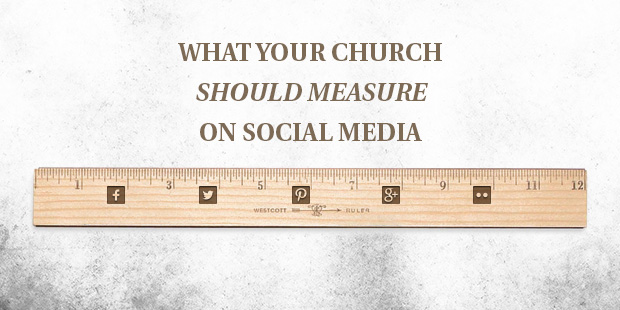
What Your Church Should Measure on Social Media
In the Facebook and Twitter social circles, adding more ‘friends’ or ‘followers’ is a popular and accepted measurement of reach. It is assumed that the greater the reach, the greater the influence. However, social media often produces “false positives” based on numbers alone, so what should a church or ministry measure when engaging in social media?
A simple rule of thumb about your church and ministry Facebook Fan Pages:
“‘Likes’ are good. ‘Comments’ are better. ‘Shares’ are best.”
- When someone ’likes’ your page, it means your wall content can show up in their News feed. This means you have a chance of them seeing what you’re sharing without them coming directly to your Facebook page.
- When a person ‘comments’ on your page, it means they have chosen to verbally respond and engage in dialogue. Note: it’s a good idea to respond to their comment by name if a response is warranted.
- When someone ‘shares’ your wall post, they’ve found enough value that they believe what you shared is worth sharing with their friends, too. This is the beginning of something ‘going viral’ (gaining momentum) in social media, and increases your reach to include those not in your ‘friends’ list to those in your friend’s friends list.
This 140-character, short status update service has put a lot of emphasis on the number of ‘followers’ you have. Early on (and still to this day), it was easy to gain thousands of followers by simply following people and hope they follow you back out of consideration or obligation. In fact, there are services that will allow you to mass-follow people by the tens of thousands. Some people have auto-follow features that reciprocate your follow, while others feel the obligation of courtesy to follow-back. What you end up with is a whole lot of followers, but very few people you actually influence.
Without a relationship of value, having a zillion followers on Twitter is insignificant.
When people choose to follow you, they find what you share to have value, which means you have some level of influence in their lives.
WHAT TO MEASURE?
These social media truths beg the question: What should churches measure with social media? The answer is simple, but gaining the answer is highly intentional and somewhat complex:
Your metrics should only consist of that which you value and track.
Good metrics are measurements against your goals. Any other kind of measurement is potentially true, but irrelevant. Build social media metrics from existing references of data. In other words, find a correlation & track it because the metrics you gather are only as useful as the insights you can apply from them. Metrics are indicators; over time, they reveal trends.
Obviously, this means that each local church will track and measure different aspects of their social media activities because the context of their church, vision and ministry is unique. No two churches should measure the same things for the same reason in the same order of priority.
How is your church measuring your effectiveness and Return On Ministry in the social stratosphere? What values and goals match your church’s unique vision that you find valuable to track, measure and evaluate? Based on these truths, what will you begin to measure differently?
Read more from Anthony here.

Tags: Anthony Coppedge, Attention, Awareness, Brand, Social Media












